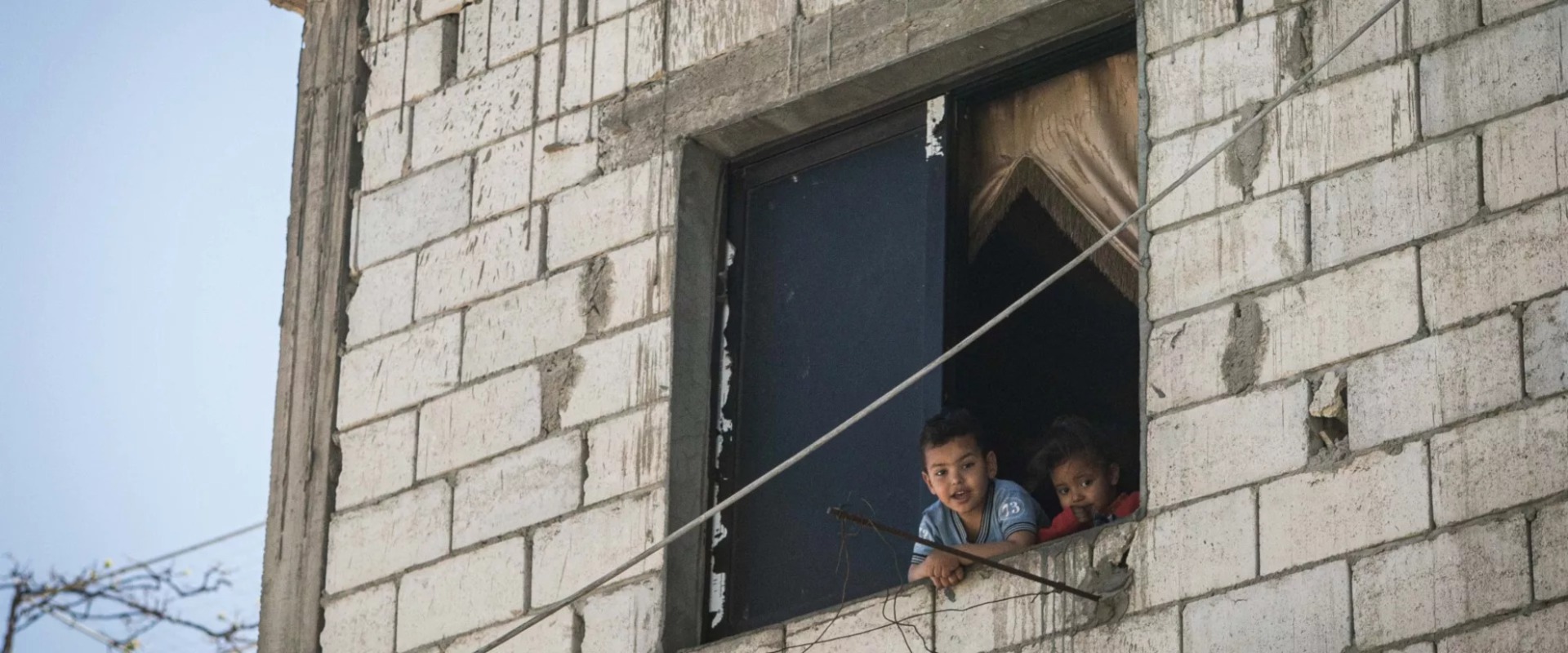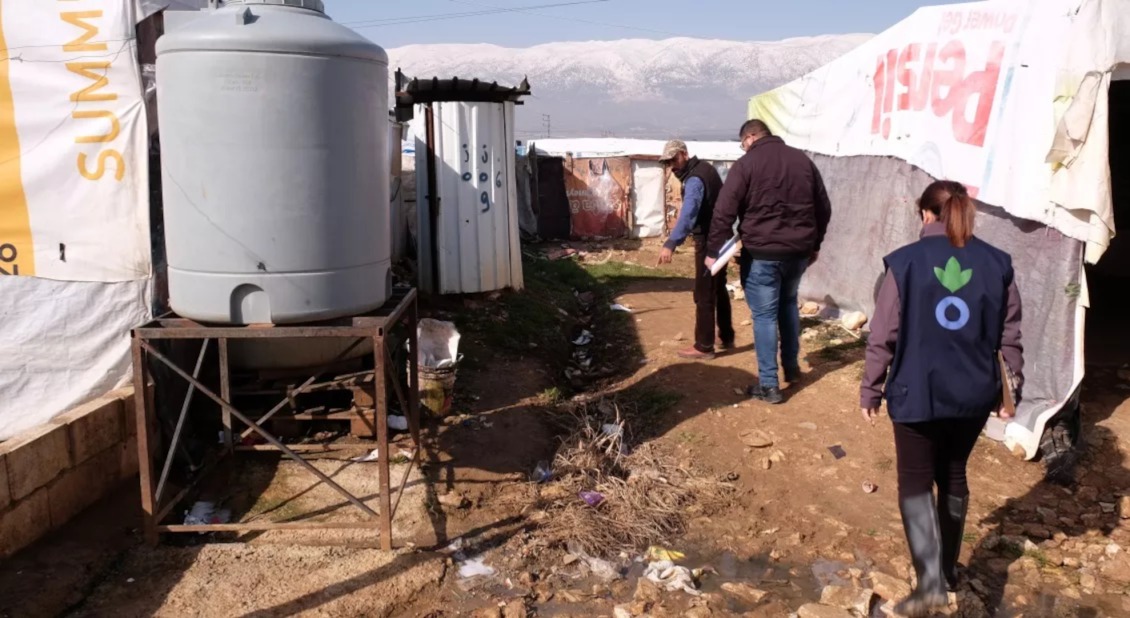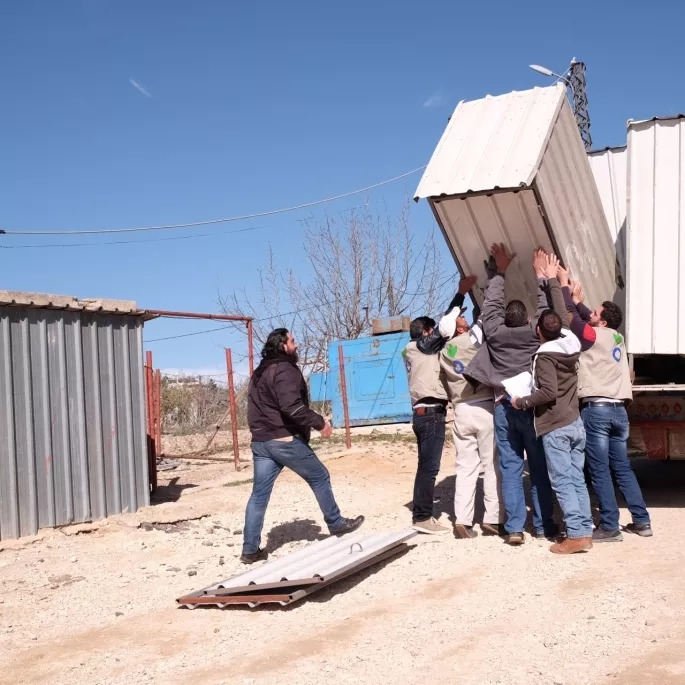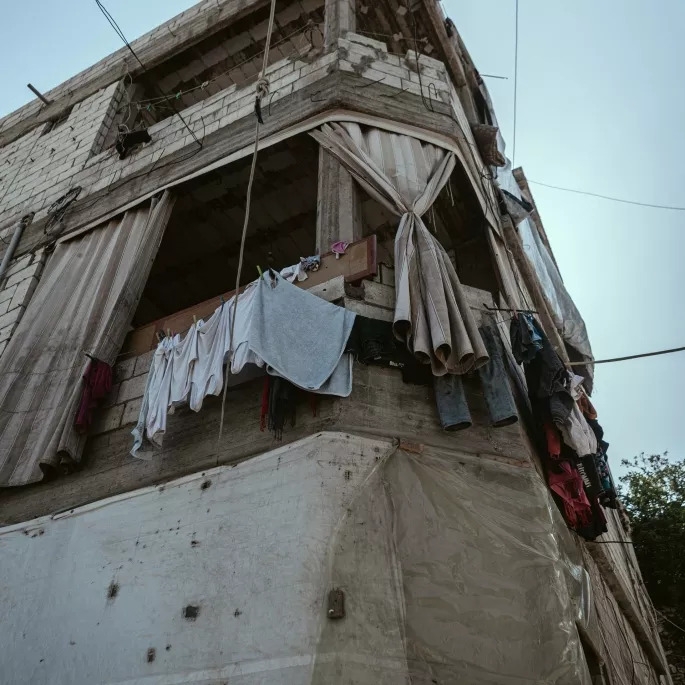
GIVE THIS RAMADAN

The regional expansion of the Gaza conflict is devastating Lebanon, where thousands of families, especially in the south of the country, have left their homes to flee the violence, amid more than USD $1 billion in damage to infrastructure, including vital agricultural lands.
According to the International Organization for Migration (IOM), regional violence has displaced more than 92,600 people in Lebanon as of mid-April. Most of the internally displaced people (IDPs) remain in villages badly affected by a conflict that has already claimed 340 victims on Lebanese soil, according to the Lebanese Ministry of Health. Among them were at least 70 civilians, eight health workers and three journalists.

Attacks in border areas have significantly damaged key civilian infrastructure such as farmland, transport, telecommunications and water supplies, limiting civilian access to basic services. According to the FAO, at least 340,000 farm animals, 47,000 olive trees and nearly 2,000 acres of agricultural land were destroyed during the harvest season. White phosphorus munitions, prohibited by international law, is threatening the fertility of agricultural land, a serious risk since much of the population relies on agriculture for subsistence. These challenges have increased commodity prices, making food unaffordable for many in the south of the country, where some 185,000 people are experiencing food insecurity and risk malnutrition.
“Although the escalation of hostilities has limited basic services in the area, our teams are aiding the displaced, distributing food and more than 90,000 hot meals, over 5.8 million gallons of safe drinking water, and thousands of basic items such as mattresses, blankets, pillows, portable cooking appliances or solar lamps,” explained Natalia Anguera, Head of Action Against Hunger’s Middle East programs. “We’re also engaging in nutrition activities focused on the health of young children.”

Nearly 2 million people in Lebanon are in urgent need of humanitarian assistance. That’s why Action Against Hunger has been on the ground since 2006 ensuring that families have access to nutritious food, clean water, jobs, and sanitation services.
Lebanon has been facing an economic crisis since 2019, which was further exacerbated by the COVID-19 pandemic and the Beirut port explosion in 2020. At the same time, it hosts a high level of refugees per capita. Despite these challenges, humanitarian funding dedicated to Lebanon has been falling steadily, with a 50% gap between hunger-related appeals and hunger-related funding.
“In these difficult times, our joint efforts with the local NGO Ajdadouna has enabled us to provide two hot meals each day for displaced people in conflict-affected areas. We are also providing children with high-energy biscuits, diapers and kits,” said Celine Haddad, one of Action Against Hunger’s staff in southern Lebanon.

More than half of Lebanon’s population lives below the poverty line. Families across the country have little access to water and sanitation services, electricity, fuel, and healthcare. Many people go hungry every night. Today, the conflict in Gaza is exacerbating this crisis.
Action Against Hunger teams in Lebanon, Gaza, and the wider region strive to provide much-needed humanitarian aid, despite all the challenges. However, without a permanent ceasefire it will not be possible to scale up these activities to meet the needs of the population. Action Against Hunger calls on all parties for an immediate and permanent ceasefire and for the international community to increase its support and funding for this crisis to ensure the protection of both civilians and civilian infrastructure, and to enable a massive increase in the delivery of life-saving humanitarian aid.
Action Against Hunger has been working in Lebanon since 2006. Last year, staff reached nearly 160,000 people with interventions focused on clean water and safe sanitation. Nearly 1.5 million Syrian refugees have taken shelter in Lebanon and now live in informal settlements and camps for internally displaced persons (IDPs). Action Against Hunger works on the ground in these communities, providing essential nutrition services and ensuring that the most vulnerable families have access to healthcare and livelihood support.
Join our community of supporters passionate about ending world hunger.